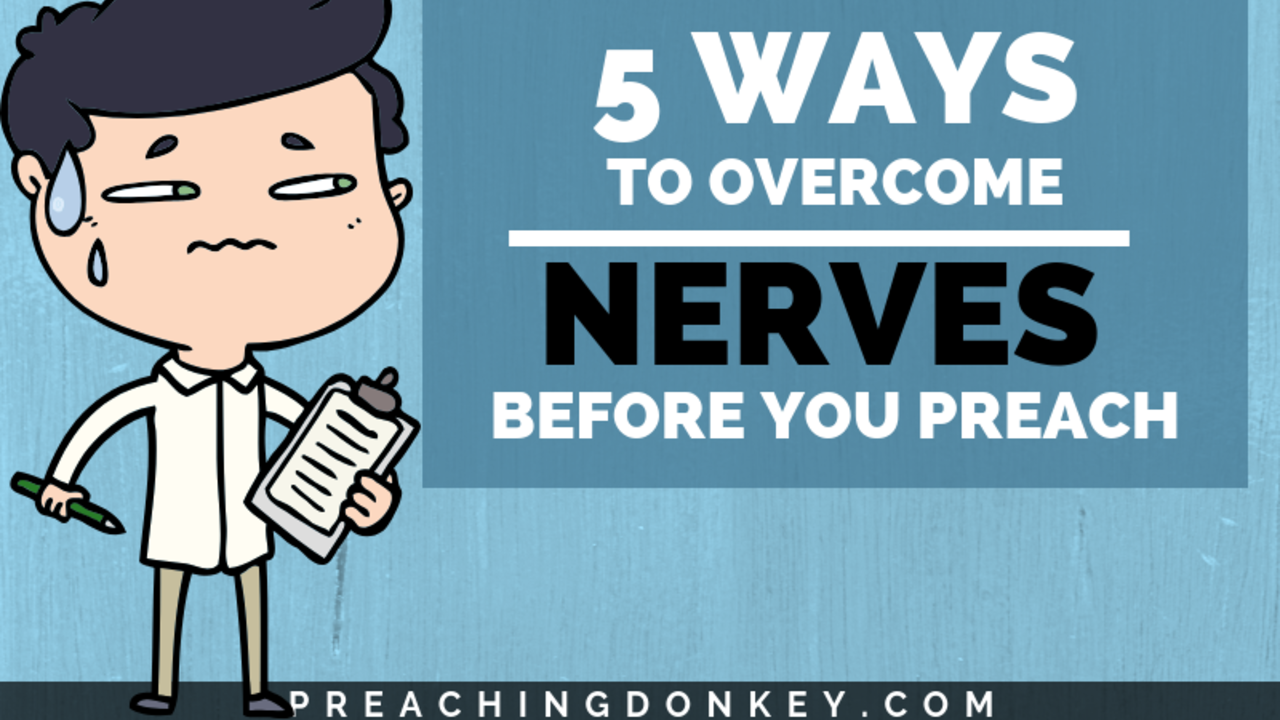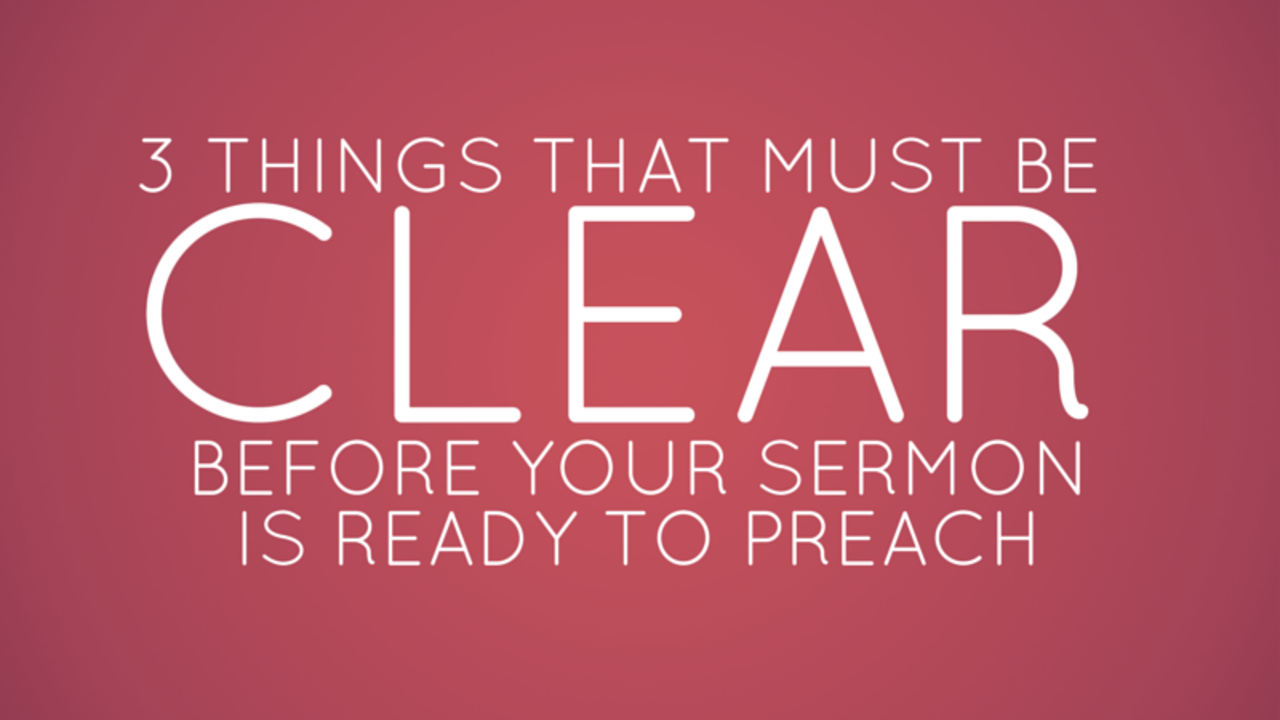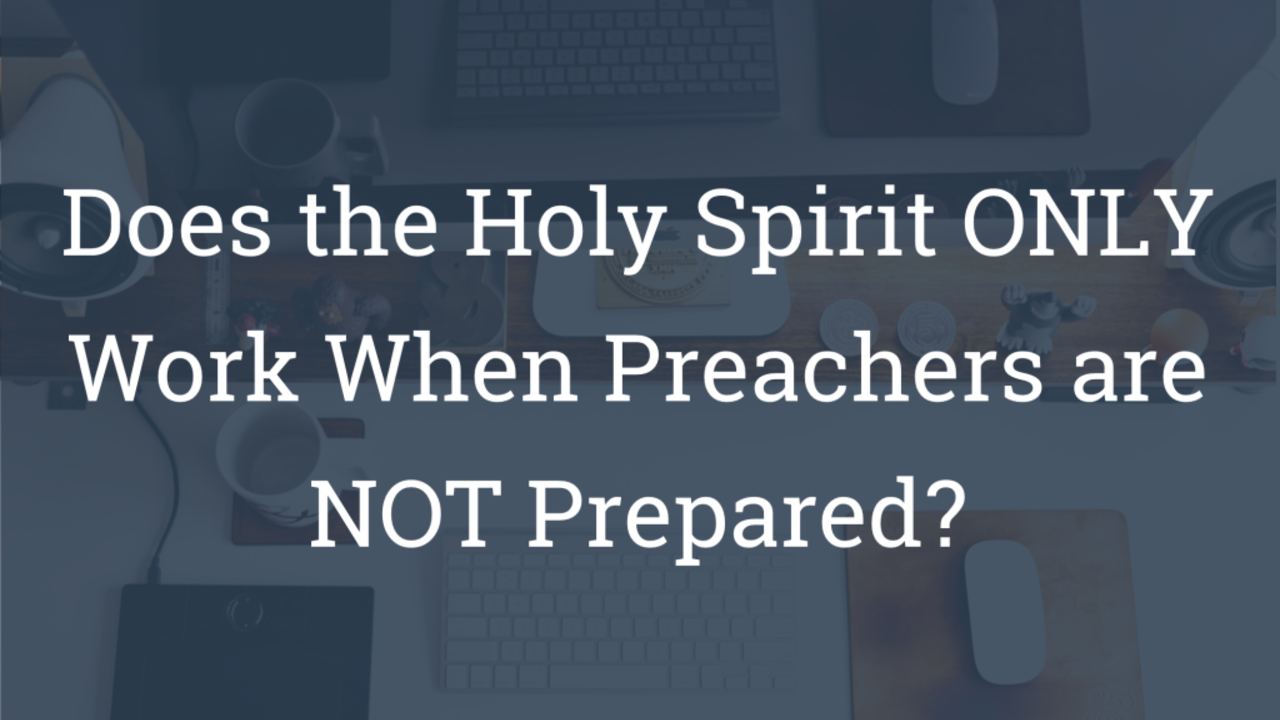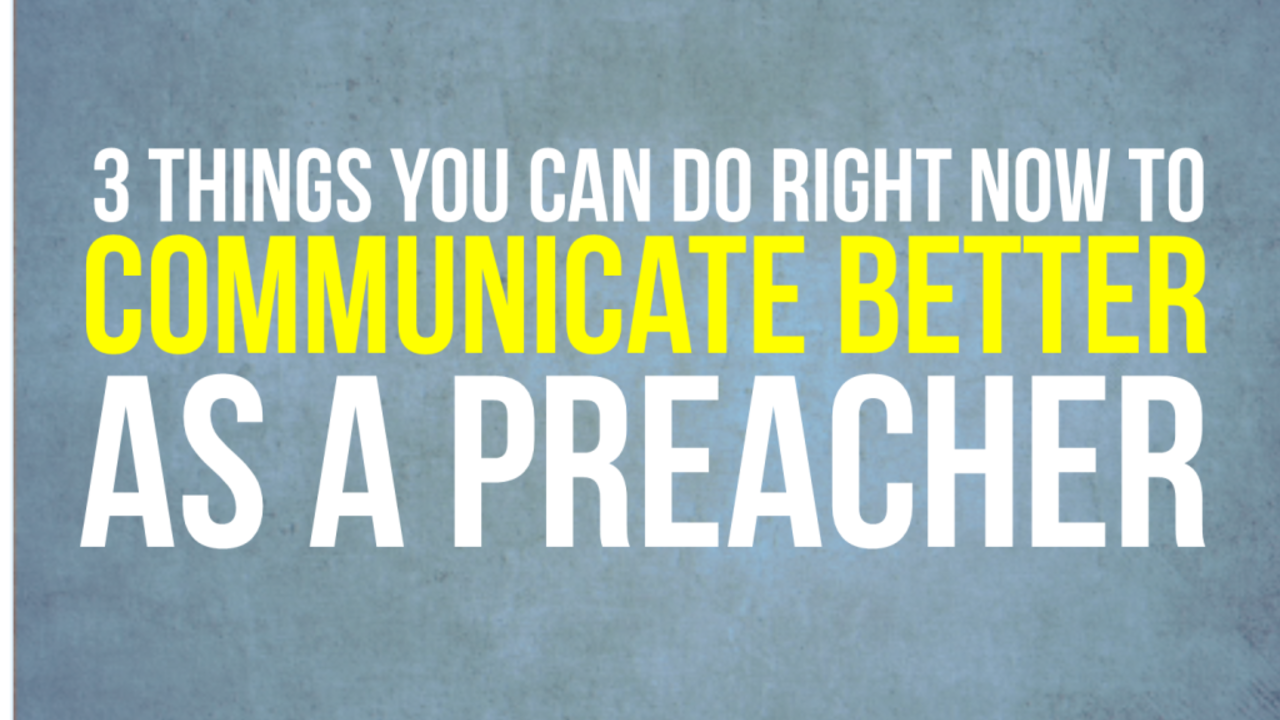The Notes I Have With Me While I Preach

In my last post I responded to a question from a reader regarding how I outline my sermons. This week I want to answer the second part of his question about and what I use for notes while I preach. Here is the original question:
Good morning Lane,
First off want to thank you for all of the work put into the blog and podcasts. I’ve personally found a lot of the content very helpful. I preach on close to a monthly basis and am a volunteer youth leader, so I teach youth on a monthly basis as well. I was interested in learning more about your method of outlining your sermon. I’ve been following a manuscript method because that’s how I’ve learned, however I find I never really stay on it and have a difficult time finding my place afterward. So my question is, what do you find to be the most useful outlining method? What do you take into the pulpit with you? Also, do you have an example of your outline you preach from? Thanks!
What do I take in the pulpit with me? This is something I am c...
My 4 Step Method for Outlining Sermons

Recently I received a question from a reader regarding how I outline my sermons and what I use for notes while I preach. I want to share his question and my answer with you. He wrote:
Good morning Lane,
First off want to thank you for all of the work put into the blog and podcasts. I’ve personally found a lot of the content very helpful. I preach on close to a monthly basis and am a volunteer youth leader, so I teach youth on a monthly basis as well. I was interested in learning more about your method of outlining your sermon. I’ve been following a manuscript method because that’s how I’ve learned, however I find I never really stay on it and have a difficult time finding my place afterward. So my question is, what do you find to be the most useful outlining method? What do you take into the pulpit with you? Also, do you have an example of your outline you preach from? Thanks!
I appreciate this question because I am always curious when I watch someone preach what their method is...
If Christ Didn’t Rise, Preaching is a Waste of Time

This Sunday is one of the biggest days of the year for churches. More people will attend church this weekend than any other time except maybe Christmas. Those of us preparing sermons for this Sunday know the pressure that Easter brings. Lots of people will be there who usually do not come. It will be a packed house, and we feel it.
But let’s not lose site of the main thing. When it comes to the things we preachers do… proclaiming the word of God, inviting people to follow Christ, communicating life-changing truths… If Jesus didn’t rise from the dead, none of it matters. But if he did rise, it’s all that matters.
The Apostle Paul said it this way:
…if Christ has not been raised, then our preaching is in vain and your faith is in vain. …your faith is futile and you are still in your sins. …If in Christ we have hope in this life only, we are of all people most to be pitied. 1 Corinthians 15:14-19 (ESV)
If Christ didn’t rise from the dead, then this whole thing is a sham. If the re...
5 Ways to Overcome Nerves Before You Preach

Nothing is more exhilarating than preaching! It’s like nothing else to get in front of a group of people, open the Word of God and point people to Jesus. I absolutely love to preach and help other preachers communicate better. But I still get nervous sometimes before I preach. Maybe you do too. A few months ago I was standing next to my wife just before my sermon. She took my hand which was freezing cold, leaned over and whispered, “Are you nervous? Your hand is freezing.” I nodded, “Yep.”
When I get up and start talking I’m completely fine. God calms my nerves, puts me at ease and gives me a confidence that can only come from him. Perhaps the pre-sermon nerves might be a way to keep me dependent upon his Spirit’s power. I am always motivated to pray like crazy before every sermon. There are three things that make me nervous before I preach. Perhaps you can relate to these:
What Makes Me Nervous Before a Sermon
1. I don’t feel adequately prepared. If I didn’t get adequate time to sp...
The Preacher’s Guide to Preparing Sermons in a Team

This was originally posted on Preaching Donkey as a 3-part series. I’m re-posting it today because the practice of team preparation has been so instrumental in my own preaching experience. If you are not yet using a team to prepare I hope to convince you to get started. It changes everything! I would love to hear from you in the comments. Thanks for reading.
Preachers do weird things. One weird thing we do is prepare our sermons alone. Every week you have to get up in front of a group of people and say words. Those words have to be engaging, powerful, motivating, encouraging, accurate, practical and spiritual all at the same time.
Every. Single. Week.
And you prepare alone. All by yourself. I think this started with Moses. He went up on a mountain and heard from God. He came down and told the people, “This is what God said.” We’ve never really changed the model. Preachers have been preparing sermons alone ever since.
I used to prepare my sermons alone. I would read commentaries, ...
3 Things that Must be Clear Before your Sermon is Ready to Preach

A mist in the pulpit is a fog in the pew.“~C.H. Spurgeon
With each sermon you preach, you should be absolutely crystal clear what you want your people to take away from it. If you are murky about how they’ll be able to use your message, then you can be sure they’ll be clueless. Not to mention that they’ll pick up on your uncertainty and check out because their time is valuable and you have chosen to waste it.
As preachers who want to communicate well, clarity must be a top priority in every sermon. But it’s easy, and sometimes necessary, to focus a most of your prep time on your content and not your listeners. This makes it so crucial to think through how your listeners will receive and use your message. I want to give you three simple tests that will help you ensure that your sermon is ready to go in terms of its impact on your listeners and their ability to apply it.
This is drop-dead simple, and it’s meant to be. At this point in your prep you have already done the complicated st...
4 Things Competing for Your People’s Attention During Your Sermon

It’s more important than ever before to work on gaining and keeping the attention of your listeners while you preach. Capturing and maintaining attention is one of the most difficult things a communicator must do. But I don’t think this difficulty has much to do with attention span. Some will say that it’s just because people have shorter attention spans than a generation ago. While attention spans may be shorter, this doesn’t tell the whole story. I do believe shorter sermons are almost always better, but what makes them better has more to do with how it makes the preacher deliver a better sermon when he has less time to waste with filler, rambling, and incoherence.
The reason we have to work harder to gain and keep attention has to do with what competes for the attention of our people every time we preach. Our listeners are so distracted, and we need to know what we’re up against. Some of these distractions are new, and some are as timeless as humanity, but they are all present ever...
Does the Holy Spirit ONLY Work When Preachers are NOT Prepared?

If you preach regularly you’ll resonate with this quip about sermon preparation, “Somebody’s gonna suffer. Either you do before, or they do during.” -Howard Hendricks
Sermon preparation is not an easy task. It takes great patience and the ability to stick through even when inspiration and creativity are lacking.
This is why I have written a lot of articles on sermon prep:
- Two Questions to Nail Down Before Every Sermon
- Here’s Why You Need a Weekly Sermon Prep Schedule
- Why You Should Prepare Sermons in a Team (3 part series)
- How to Preach Like You’re Having A conversation with Everyone in the Room
- How to Get More Helpful Feedback on Your Sermons
- Why Shorter Sermons are Almost Always Better
I know that sermon preparation can be vexing, and I want to help in any way I can. I also know how important it is to put in the necessary hard work and deliver a sermon that is worthy of a listen.
I get interesting feedback when I write about the importance of working hard at sermon prep...
3 Things You Can do Right Now to Communicate Better as a Preacher

The most effective preachers are continual learners. What separates ordinary preachers from extraordinary communicators is a relentless desire to improve. But there are so many things competing for your time it’s difficult to know which resources to take advantage of. To make it easier, I want to share 3 things you can do right now to communicate better as a preacher:
1. Read great preaching resources.
I once met with guy who was in his sophomore year in college. He felt a strong calling to be a pastor and wanted to know if he should change his major and pursue ministry as a career. I offered him some books to read that would help him think through his decision. He declined them, “I’m not much of a reader.”
“Well, then you won’t be much of a pastor.” I responded without thinking much about it.
He was surprised at my assessment that he should either become a reader or do something different for a living. I feel very strongly that those of us who preach have a responsibility to stay ...
Two Questions to Nail Down Before Every Sermon

To know if you were successful at something you’ve tried, you have to know what you were seeking to accomplish. This is true in every area of life but especially in preaching. This is why I nail down two questions before every sermon. These two questions are an essential part of my sermon preparation process, and I want to share them with you.
1. What is the objective for this sermon?
When you think back on a sermon you’ve preached you should know if you met your objective. Nothing is more frustrating than putting lots of work into a sermon and having no way to measure its effectiveness. But to assess the sermon you need an objective to measure it against. And to meet an objective, you must have an objective. So what exactly is a preaching objective?
A preaching objective is simply what you want the sermon to do. A sermon should be more of a verb than a noun. A sermon should work. It should accomplish things.
But your sermon only accomplishes what you make it accomplish. Your sermo...


